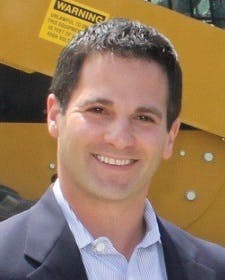Frédéric Bastiat, the great French legislator, economist, and writer detailed in his work, That Which is Seen, and that Which is Not Seen, the unintended consequence of government action.
He wrote: [A]n act, a habit, an institution, a law, gives birth not only to an effect, but to a series of effects. Of these effects, the first only is immediate; it manifests itself simultaneously with its cause - it is seen. The others unfold in succession - they are not seen: it is well for us, if they are foreseen.
When it comes to politics and economics, there isn’t a better way to describe the consequences of government action. Every law produces an anticipated effect, but it will also cause an unexpected result. The sooner the unforeseen can be uncovered (in the best circumstances this will occur prior to enactment); the better the public can adjust or remedy the situation. Unfortunately, U.S. lawmakers and the administration act (or fail to act in certain circumstances) every day and with that comes inadvertent costs to the public.
The unintended consequences are especially profound when policymakers dive into areas where they have limited expertise. How many aviation maintenance specialists were members of the last Congress? You guessed it: none. There were a handful of lawmakers with experience as pilots or as aviation industry executives, but there were no aviation mechanics, repair station owners, or A&Ps in Congress. In fact, most lawmakers have never even run a business. Additionally, there is already a complex regime of rules and mandates in place regulating the aviation industry. So, it shouldn’t come as a complete surprise that Congress, when legislating in the aviation maintenance arena, creates unintended consequences.
The voice of aviation maintenance in our nation’s capital
This is where the Aeronautical Repair Station Association (ARSA) enters the picture. ARSA is the voice of aviation maintenance in our nation’s capital educating lawmakers and regulators about the consequences of their actions. The association is engaged on behalf of certificated repair stations on a daily basis with those creating policy that will directly impact the aviation maintenance sector. In other words, ARSA is here to limit the impact when policymakers give “birth not only to an effect, but to a series of effects.”
The most recent Federal Aviation Administration (FAA) reauthorization is illustrative of ARSA’s role in the process. Until recently, the FAA was operating based on policies and funding levels set by Congress in the 2003 law VISION-100, which granted the agency operating authority through 2007. In February 2012, following 23 extensions of VISION-100, Congress finally enacted legislation (the FAA Modernization & Reform Act) setting new policies and priorities for the agency. The process was long and arduous and ARSA was engaged throughout.
In between the expiration of VISION-100 and the enactment of the FAA Modernization & Reform Act, it was clear key lawmakers in the House and the Senate had their sights set on contract maintenance. Legislation impacting the aviation maintenance industry was inevitable; ARSA’s goal was to lessen the negative consequences (both intended and unintended).
One proposal would have mandated FAA inspections of all certificated foreign repair stations regardless of bilateral agreements with other countries. The intended consequences were apparent (duplicative, burdensome inspections for repair stations), but the unforeseen were not so obvious (the collapse of the U.S.-E.U. bilateral safety agreement, increased certification costs for U.S. repair stations).
In the end, the industry’s efforts paid off. The final bill codified FAA policy requiring that foreign repair stations be inspected annually by agency safety inspectors in a manner consistent with BASAs. It also ensured the FAA can carry out additional inspections based on identified risk. The FAA need not perform duplicative inspections in areas where there are BASAs in place. There will still be consequences, both intended and unintended, but they will be limited because of the Association’s early and persistent engagement with key lawmakers.
ARSA also anticipated congressional action in the area of “noncertificated maintenance providers,” a subject about which few on Capitol Hill had any real knowledge. To guide the process, when drafting the FAA Modernization & Reform Act, ARSA proposed specific language to limit the negative consequences of the bill. In the end, many of our suggestions were incorporated into the final provision governing maintenance providers for Part 121 air carriers.
Legislation creates regulatory fallout
Of course, legislation creates regulatory fallout and the FAA bill is no exception. For example, on Nov. 13, the FAA issued a Notice of Proposed Rulemaking (NPRM) in response to the legislation’s “noncertificated maintenance” provision that seeks to amend rules governing Part 121 and Part 135 operators. Specifically, the proposal mandates operators to develop “policies, procedures, methods, and instructions” for oversight of contract maintenance providers that are acceptable to the FAA as part of the operator’s maintenance manual.
While we are still assessing the NPRM’s full impact on repair stations and air carriers, there is no doubt the new regulation will have consequences, both intended and inadvertent, for the whole industry.
Government action is inevitable; however, when it decides to act and it will impact repair stations, the Association’s first priority is to limit damage. We next educate the industry about the consequences and, if necessary, work to change the detrimental law or regulation. Because regulations are a direct result of behavior on Capitol Hill, ARSA will continue engagement on all fronts, but we need the entire industry to join our efforts.
In conclusion, I will quote another Frenchman, Bernard of Clairvaux, whom many believe coined the idiom “the road to hell is paved with good intentions.” Lawmakers and regulators may have virtuous objectives, but it doesn’t mean that their actions won’t put us on a path toward devastation. Consequently, we must stay engaged! For the latest information relating to the repair station industry visit www.ARSA.org.
Daniel B. Fisher is ARSA’s vice president of legislative affairs and senior legislative associate at the law firm of Obadal, Filler, MacLeod and Klein. Fisher attended St. Mary’s College of Maryland, where he graduated magna cum laude, and received a law degree from George Mason University School of Law. Prior to joining ARSA, Fisher served four years on the U.S. Senate Judiciary Committee staff of the late Sen. Arlen Specter (PA). He can be contacted at [email protected] or (703) 739-9543.



